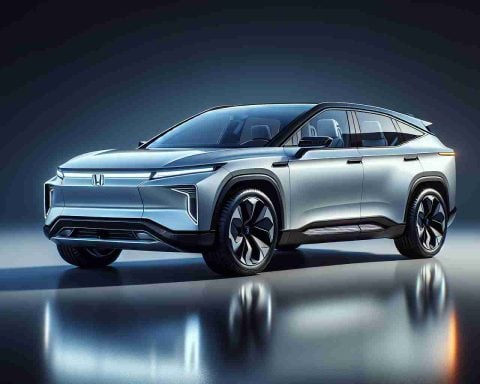Understanding Tesla’s Market Position Amidst The Hype
Tesla’s future strategies for 2025 are focused on essential areas such as launching an affordable model, advancing autonomous technologies, and enhancing revenue from its Energy division and regulatory credits. However, the question remains: do these initiatives genuinely influence Tesla’s stock performance?
Analyst Dan Levy from Barclays points out that current market excitement for Tesla stock appears detached from actual fundamentals. He argues that since the recent Presidential election, the narrative surrounding the company has accelerated tremendously. This has led to a notable growth in Tesla’s stock price, increasing by 66% since that election, despite concerning aspects related to the EV industry’s overall outlook.
Tesla’s valuation has skyrocketed to a staggering 123 times its anticipated 2025 earnings, reflecting an intense speculative atmosphere reminiscent of the EV excitement seen in late 2021. While investors are captivated by the potential of autonomous driving and artificial intelligence, the opportunity is still mired in uncertainty.
Levy also highlights the significant influence of Elon Musk, suggesting that an “Elon premium” may be currently at its peak. Nevertheless, relying on Musk’s prominence in the market carries its risks, particularly in light of past tensions between him and political figures. Levy recommends a cautious approach, assigning an Equal Weight rating to Tesla shares, projecting they may face a 20% decline from current prices, while consensus ratings suggest a neutral stance on the stock.
Implications of Tesla’s Market Dynamics on Broader Contexts
Tesla’s soaring market valuation, currently at 123 times its anticipated 2025 earnings, poses significant implications for both the global economy and society at large. As investors increasingly pivot towards electric vehicles (EVs), the economic landscape undergoes a transformative shift. The intense speculation surrounding Tesla not only mirrors the volatility of tech stocks but also risks undermining sustainable investment practices. When valuations become disjointed from concrete fundamentals, it can lead to a broader market correction, potentially destabilizing investor confidence in the green technology sector.
The surge in interest in autonomous driving technologies, fueled by hype surrounding figures like Elon Musk, also comes with environmental ramifications. Should the industry shift toward prioritizing autonomy over sustainable production practices, we may witness an adverse effect on emissions reduction efforts. A balance must be sought between innovation and sustainability to ensure that the push for self-driving capabilities does not eclipse the essential goal of reducing the carbon footprint associated with vehicle production.
Moreover, the implications of Tesla’s market position extend into cultural realms as well. The allure of the “Elon premium” manifests a unique relationship between leadership persona and corporate valuation. This dynamic could set a precedent for future business leaders, where celebrity status becomes intertwined with corporate equity—a development that might distort accountability metrics that are crucial for long-term success.
In summary, Tesla’s trajectory, while promising in terms of sustainable technology, raises critical questions about economic stability, environmental responsibility, and the evolving nature of corporate influence on culture and society. As this narrative unfolds, stakeholders must navigate these complexities wisely for a sustainable future.
Is Tesla’s Stock Market Performance Sustainable? Insights and Predictions for 2025
Understanding Tesla’s Market Position Amidst The Hype
As Tesla eyes 2025, the electric vehicle (EV) manufacturer is poised to implement several key strategies aimed at maintaining its market dominance. These initiatives focus on launching a more affordable model, enhancing autonomous driving technologies, and boosting revenues from its burgeoning Energy division and regulatory credits. However, the crucial question arises: how will these strategies impact Tesla’s stock performance in the years to come?
Market Trends and Tesla’s Valuation
Recent analysis shows that despite Tesla’s innovations and ambitions, its stock price may not reflect its underlying fundamentals. Analyst Dan Levy from Barclays notes that since the Presidential election, Tesla’s stock has surged by an astonishing 66%. This increase raises concerns about whether such a rapid ascent is justified given the overall volatility in the EV sector.
Tesla’s current valuation stands at an astronomical 123 times its projected earnings for 2025, a statistic indicating high market speculation reminiscent of the fervor experienced in late 2021. As investors continue to be drawn to Tesla’s promise of autonomous driving and AI advancements, caution must be observed due to the uncertainty surrounding these technologies.
The “Elon Premium” and Investment Risks
Levy emphasizes the substantial impact of CEO Elon Musk on Tesla’s market valuation, proposing that an “Elon premium” might be at its highest. The strong influence Musk wields over investor sentiment can act as a double-edged sword. Past controversies, including disagreements with political figures and erratic public behavior, highlight the risks of relying heavily on a single individual’s public image for a company’s market performance.
Analysts advise adopting a prudent investment strategy. With a rating of Equal Weight assigned to Tesla shares, Levy projects a potential decline of 20% from the current prices. This contrasted view is echoed by many in the investing community, suggesting a more neutral stance amid the stock’s volatility.
Pros and Cons of Investing in Tesla
Pros:
– Innovative Technologies: Tesla is at the forefront of EV technology and energy solutions.
– Strong Brand Recognition: The Tesla brand carries significant weight in the EV market.
– Market Leadership: Tesla is one of the leading manufacturers in the EV space, with a growing global market share.
Cons:
– High Valuation Risks: The current stock valuation may not be sustainable if growth expectations are not met.
– Dependency on Musk: The company’s fortunes are closely tied to Musk’s decisions and public image.
– Market Volatility: The EV market remains subject to fluctuations and regulatory changes, impacting Tesla’s operations.
Predictions and Insights for 2025 and Beyond
Looking forward, several factors may shape Tesla’s trajectory:
– Emerging Competition: As new players enter the EV market with aggressive pricing and innovative technologies, Tesla may face increased pressure to maintain its market share.
– Technological Advancements: Successful rollout of autonomous driving features could significantly enhance revenue streams; however, the timeline remains uncertain.
– Sustainability Efforts: Investors are increasingly focused on companies’ sustainability initiatives. Tesla’s endeavors in energy generation and storage could foster investor confidence if effectively executed.
Conclusion
Tesla’s ambitious plans for 2025, while exciting, come with notable risks and uncertainties. Investors should remain vigilant by closely monitoring market conditions, Tesla’s financial performance, and advancements in its technology. As the landscape for electric vehicles continues to evolve, understanding the balance between potential and risk is essential for navigating Tesla’s market position.
For more insights on the electric vehicle sector and investment strategies, visit Tesla’s official page.


















